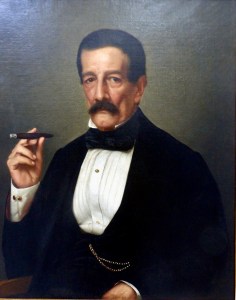 In a recent article for The Free Press, journalist River Page explored how cigarette smoking has become something of a conservative cause.
In a recent article for The Free Press, journalist River Page explored how cigarette smoking has become something of a conservative cause.
While noting that Americans’ use of smoking products has continued to decline, Page writes, “strangely, there’s a sense that nicotine has become more popular: a cause célèbre to be championed by a certain kind of conservative.” In fact, Page documents how until quite recently, Democrat voters were more likely to be smokers than Republicans, but that appears to have reversed with research that shows more than half of smokers in 2024 voted for Donald Trump.
Page credits this shift to a kind of libertarian impulse among smokers who are weary of a nanny state trying to dictate every facet of our lives and that has tried to regulate smoking out of existence.
Perhaps there’s some truth to this. I am not a cigarette smoker, and I am not a libertarian (any more). I am, though, a conservative, and a pipe smoker who also occasionally enjoys a cigar.
While libertarians may see smoking as an act of defiance against the overreach of public health bureaucrats, conservatives value it for deeper reasons. It is not simply an assertion of personal choice, but a return to the rhythms and habits of a culture that once valued leisure, reflection, and connection to the past.
After all, conservatism is not primarily a political philosophy or agenda. It is rather, as Russell Kirk famously argued, a way of life. Conservatism “is a state of mind, a type of character, a way of looking at the civil social order…. In essence, the conservative person is simply one who finds the permanent things more pleasing than Chaos and Old Night.”
Smoking tobacco is not of necessity one of the permanent things that conservatives should cherish, but it does symbolize an older way of life and a different sensibility. Choosing to smoke makes one immediately recognizable as one who is not “with the times.”
From the earliest days of the American colonies, tobacco was more than just a crop—it was a foundation of economic independence and self-sufficiency. In Virginia, it served as currency, shaping the very structure of colonial life. Figures like Thomas Jefferson and George Washington cultivated tobacco, reinforcing its status as an essential part of the agrarian tradition that conservatives often celebrate.
Smoking hearkens back to a culture when personal autonomy was cherished but moderated by a strong sense of social obligation and traditional mores.
But to me the most conservative element of smoking, especially when it comes to pipe smoking, is the deliberate effort it takes to stop what one is doing, fill the bowl, light, and enjoy the sensory experience of the smoke, either alone or in the company of a good friend. It is a contemplative, incarnational activity that stills and reunites the mind, body, and spirit, fosters quiet reflection, and becomes an act of conservative resistance to the hurried, efficiency-obsessed culture of modernity.
In a 1997 essay originally published in First Things, Michael P. Foley examined how smoking cigarettes, cigars, and pipes correspond with the three parts of the soul as understood by Plato: cigarettes to the appetitive, cigars to the spirited, and pipes to the rational parts of the soul, respectively. Foley explains how marijuana and non-smoked forms of tobacco do not speak to the soul of a man in the same way. And he sees in the decline of pipe smoking a decline in our cultural appreciation for the intellectual:
If the pipe epitomizes the intellectual way of life, then is it any surprise that it cannot be found where schools substitute politically correct ideology for real philosophy, or where the intelligentsia, instead of engaging in serious thought, pander to the latest activist fads?
The conservative impulse is not merely to resist change, but to preserve what is worth keeping. Smoking, particularly pipe smoking, connects us to our history, our traditions, and our capacity for contemplation. Conservatism is not about nostalgia but about continuity—an affirmation that some things, no matter how unfashionable, remain worth defending.
Let me conclude by quoting from a poem, “On Receipt of a Rare Pipe,” that appeared in an 1897 collection of verse called Pipe and Pouch: The Smoker’s Own Book of Poetry, from an author listed only as “W.H.B.”
For this: Some links we forge are never broken;
Some feelings claim exemption from decay;
And Love, of which this pipe is but the token
Shall last, though pipes and smokers pass away.
This essay was first published on Dr. Houchens’ Substack.
The Imaginative Conservative applies the principle of appreciation to the discussion of culture and politics—we approach dialogue with magnanimity rather than with mere civility. Will you help us remain a refreshing oasis in the increasingly contentious arena of modern discourse? Please consider donating now.
The featured image, uploaded by Wolfgang Sauber, is “Porträt eines Senor Martinez” (19th century), by Federico Martinez Matos. This file is licensed under the Creative Commons Attribution-Share Alike 4.0 International license, courtesy of Wikimedia Commons.











